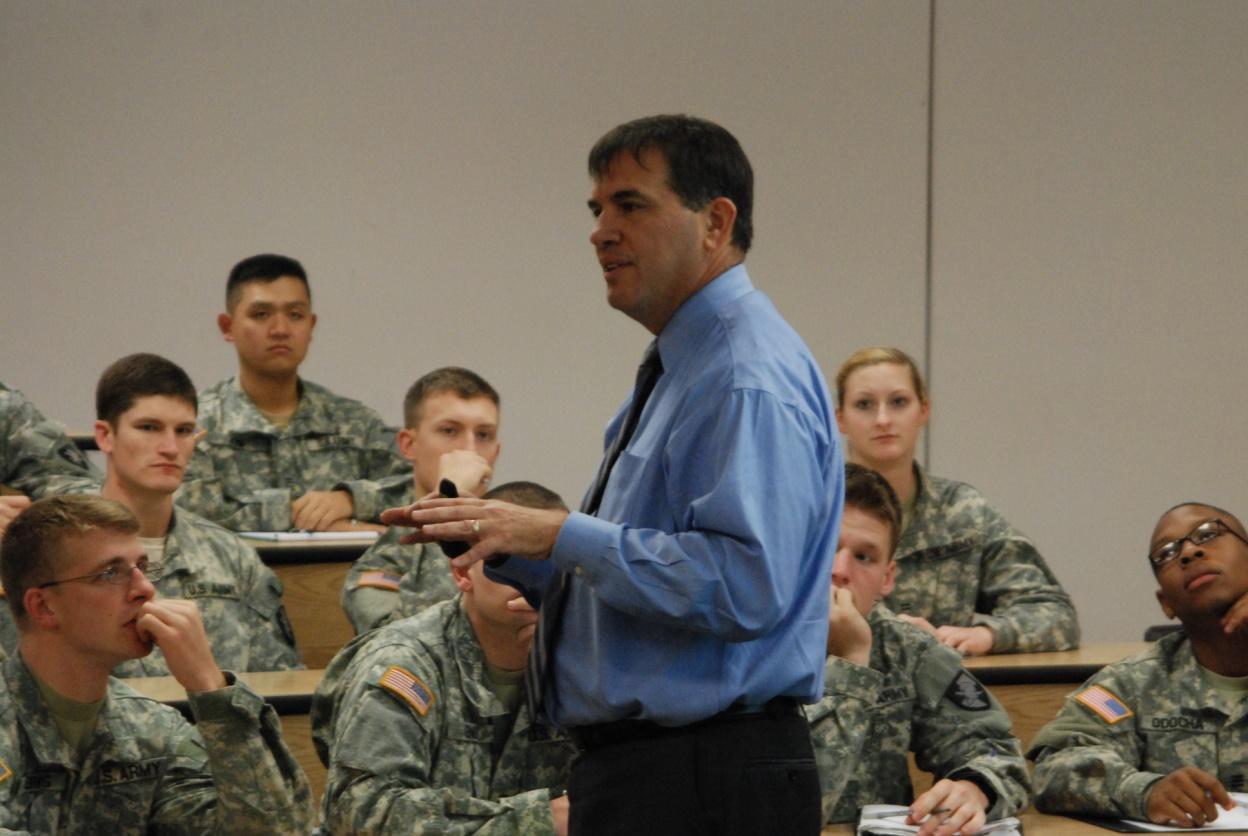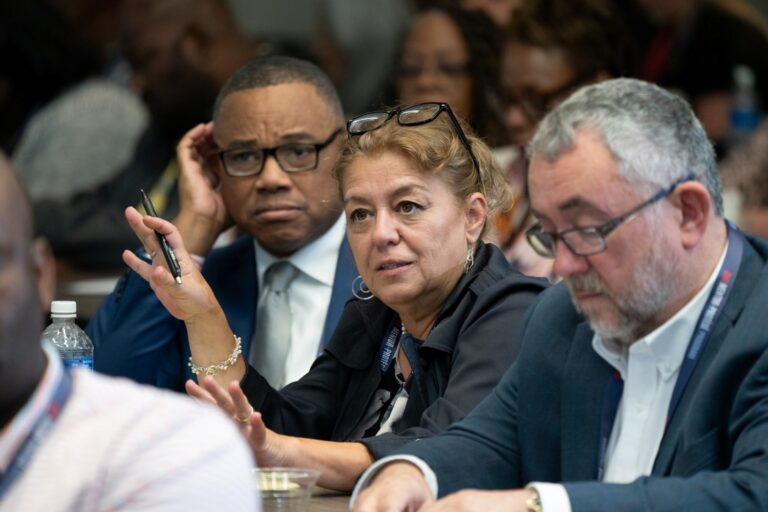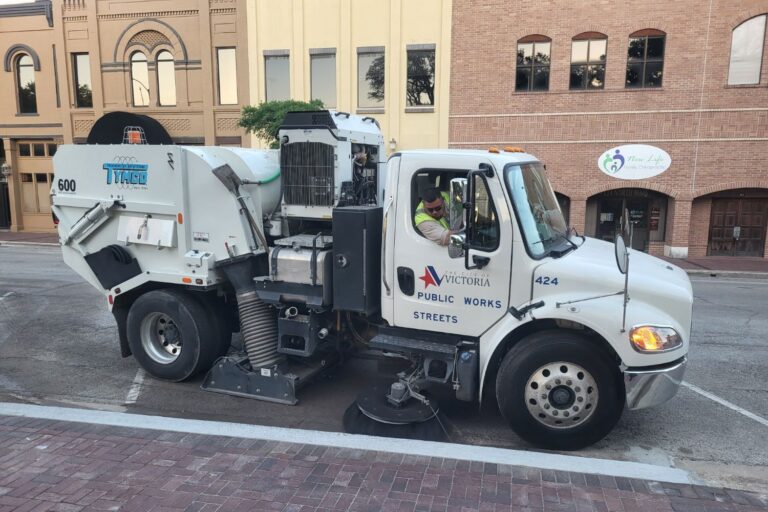How Has EMCOR’s CEO Seamlessly Intertwined the Army with Corporate Culture
In 1995 Jamaica Water Supply emerged from bankruptcy and was rebranded as EMCOR, focusing more on key business segments related to its electrical and mechanical construction activities. With a wide range of customers from industrial, commercial, institutional to utilities, the company has since stabilized, and established itself as a ‘Home runner’ in the construction space.
The “powerhouse” that makes great stride in this giant’s operation is Tony Guzzi, who joined the firm around 2004, then got elected to the board five years later and finally became its CEO in 2011. It took Guzzi only seven years to ace this corporate succession game – how did he nail it?
“West Point Is the Foundation of My Success!”
Prior to EMCOR group, he held a variety of senior leadership positions at United Technologies, and its subsidiary Carrier. Besides, Guzzi once stood as an engagement manager at McKinsey.
But the foundation for Guzzi’s entrepreneurial traits is his leading crave since his adolescent ages, with experiences as a school president, the captain of the football team and especially his bold history serving in the US military academy West Point, in which all of his professional standards and life principles were rooted.
On an interview with Max Weisman from Leaders of Character, the CEO recalls his time at the academy, stressing that what he had learnt there has built up to today’s achievement. In retrospect, the usual talks among Guzzi and his fellow sergeants sometimes revolved about people and leading.
“And I have always told people that one of the most foundational things you will face, whether it be at West Point or in the corporate world, is the platoon leader vs. platoon sergeant relationship.”
From his standpoint, either in the army or in the marketplace, leaders have to learn that they are going to be younger than a lot of their subordinates and they have to figure out how on their own. If leaders master that, whether it is a civilian career, an army career, or any type of race, they will stand a good chance of being successful. Whereas “you are actually leading someone who knows a lot more than you, you know things that they do not.”
Put all five years at West point together, he comes out with three things: “my values have been built and strengthened, my leadership has been tested and I have been given a world class off education that taught me how to think.”
Continuing the conversation, Guzzi talks about key takeaways that he managed obtained from West Point that set him up for success as an officer and then in the private sector.
Key #1: “You Cannot Always Win.”
“You are not always going to succeed.” There is no one who has ever graduated from West Point but has not failed, he explains, “most of us when we come to the academy, within the first six hours I have continued to fail for over the next four years.”
In his day, Guzzi recalls, they started with 1,500 cadets going in and the number of graduates just around 950. There existed a lot of tests to fail, and as a captain in his hometown for so long, it stroke him that there were numerous captains out there that he had to fight against – “there were tests that set out to fail you, but I think I am going to be one of them I won’t quit.”
That very first crash has taught him how to fail and pick himself back up to work harder. It’s about acknowledging and being comfortable with the fact that you are not going to get ‘an A’ on everything, you are not the best at everything.
Key #2: Team and Camaraderie

The other thing he learns is that you are only as good as your team, and especially, vice versa – they can only be as good as you!
As a part of a cohesive team, you will notice that right away: Are you the one who sticks around? Are you solving the right problem? How do you talk and work?
“35 years later, they still recognize you with that. So that is a very minor traits, but they exist, and it tells a story about you,” Guzzi notes. Teams and individuals base on that story and form their respect, attitude and even devotion toward you and your organization. In other words, how you want your team to present, let’s first be that professional role model.
There is another small and fun fact about teamworking military style.
Teamworking at West Point, he says, is a quite different compared to Harvard Business school. At academy, you would help anybody to succeed. For instance, if you are good at something, you would stay up all-night and get them through, you would help them with their papers and their shooting.
“The camaraderie, fellowship and teamwork are intertwined with each other, which is the lesson serving you well forever.”
Ace Culture with the True Colors of Caring
How have Guzzi tried to build this winning culture ethos with the spirit of ‘having each other’s back’ at the private sector? Is it possible to bring something from the army to the business market?
In the army, not all units have good cultures and, in a company, not all platoons are as good as the other, the CEO says, yet there is a framework – leaders are required to obtain.
#1: To Have People Trust your Character
Firstly, characteristic and accountability are of primary importance.
Your trust is earned – not given; you have to work really hard to earn people’s trust. “The older I get, the bigger the organization becomes and the more I realize that you cannot build an organization without trust and competence, you really don’t have much chance.”
Should you wish to nail it, you are not going to leave anything; “you are going to put everything on the field” and you are giving maximum effort that they cannot question.
Next to accountability, a bold character is a “must”, and, in this case, it is confidence.
“Confidence not arrogance, you cannot lead if you do not have some level of confidence. However, confidence does not mean you are dumb, and you just try things out, but measure confidence with your willingness to push yourself and the willingness to be uncomfortable,” the CEO addressed.
At any level when you lead either a small or large team, what they need to know is that you are confident and to have confidence, you need to know what you are supposed to do to be their leader. That doesn’t mean being a know-how book in everything, just the foundation of your field and the will power to transform ideas into real results.
As Guzzi puts it, it’s critical to understand how to be a good employee first and show them the way.
“First, you have character; second, you care about them.”
#2: The True Color of Caring

Guzzi has learned a lot from time, it reveals many faces of a problem and how standing at different positions in the game would force you to change your ideology and decision. For instance, let’s delve into the approach of caring!
The CEO explains, the larger the organization, the higher you are – the more complex it is, the more constituencies you have to take account of when you make a decision. The magnitude of your decisions actually can impact lots of lives – not one or two.
And over time, as EMCOR has grown into a national group, he has to change his decisions on approaching ‘care.’
“Caring now is no longer what you think it is. It is not always putting your arm around somebody and telling them they are doing great – that is the easy stuff.” The hard part of caring is discipline.
“If you are the infantry platoon leader – ‘Hey, sir why are we spending the extra half hour every night going through disassembly and assembly, why do you have us do this blindfolded?’ Caring is not all the nice things caring is sometimes doing the hard things,” Guzzi insists.
It’s doing the things that are going to keep people stay productive over a long period of time. Your caring can be telling somebody they have to leave the unit because they are slowing and putting the rest of the unit at risk. Caring in the civilian world sometimes means focusing the organization relentlessly on getting the job done while keeping everybody safe, or even mean cutting more jobs.
Caring means having a really disciplined organization because, he says, what they do at EMCOR is very dangerous – with electricians and plumbers working with high voltage and massive structures. If teams do not know what they are doing, or the work is not planned correctly, they can get hurt.
“The higher you go the less caring looks like putting your armor on somebody and say they are doing a great job. It’s the decision you are willing to make to have your organization win and to keep your people safe and allow them to build long-term and satisfying careers.”
“Why I Don’t Encourage Failure and the Ideology of Servant Leadership?”

More from the conversation, Guzzi talks on the leadership reaction to failure and ‘bad news.’ How does that translate into the corporate culture of trust?
The higher you are in organization, the less you get to celebrate good news. But let’s make sure the people from two or three level down from where you are, know they can have an open door to talk about things that are not going well. If they somehow think they cannot do that, then your organization could be in an even more difficult situation.
“33,000 people within 80 offices around the country, to generate about $80M a year, and every one of those is an opportunity for something wrong to happen.” The CEO continues, even though learning from mistakes is what people says, however, “I do not encourage failure, I encourage measured risk.”
You never fire somebody for something going wrong, because, at that level they may not have strong business acumen or rational judgement yet. However, the higher you go – you get paid to have judgment. If the company runs into failure, and someone eventually showed to have very poor judgment, you – as a leader – have to do something about that. “If we had a failure and the judgment was good, the decision making was good, ‘hey, we learned from it!”
But under no circumstances can that first reaction ever be anger. You have to get the facts and team of people that are willing to come and tell you things. Ironically, they only do that if they trust you.
And so, how do you build trust?
Guzzi says, the secret lies in the philosophy of servant leadership in which the goal of the leader is to serve.
This is different from traditional leadership where the leader’s main focus is the thriving of their company or organizations. Instead of having people work to serve the leader, the leader exists to serve the people.
“If you keep that for your life you will be a good father and husband, because you know that 35 years later after graduation then three kids and 31 years wife – you can’t be two different people, from who you are at home to who you are at work.”
For that genuine philosophy, the CEO has earned a team of whole-hearted and loyal people who, he says, have joined his journey for 25 years from the United Technologies – his former company – to EMCOR. There are also people who sell him their life-long work as he is looking for acquisitions, “they are not going to sell it to someone they do not trust. They sell it to someone that is going to take care of their people and help their business prosper,” Guzzi continues.
“When people know you, they know the values of the company. We are big value driven company here at EMCOR, and they know that I am not in this for myself.”
The Four Values around Mission and People

As the bottom lines of corporate’s decision should revolve from its core values, the CEO says, for EMCOR and his personal life– there are a few keys and values that underline how he runs things and lives ever since.
The first to mention is the army philosophy of ‘mission-first, people-always.’ But why aren’t people-first missional?
If missions aren’t accomplished, if you don’t get result, you are not known as someone that can ever be given the resources to take care of your people. No one want to hear from a person who wants all kind of resources, and they have no track record of getting result.
The second is discipline, “discipline can be an overused word, but discipline is one of my core values.” And to him, it is not only showed in how you work and deliver tasks – it also lies in how you dress, how you stay in shape throughout your life. It is in how you treat your family and respect people in the position of authority and especially “you do respect to show your people how to” – that are all discipline.
Transparency is the third thing he believes in strongly. When you run an organization with thousands of jobs, if people are not willing to be transparent to each other from financial result, hiring decisions don’t work – “why you hire, why don’t, why you reward, why you don’t reward that all has to be transparent,” Guzzi says.
Why these results need to look the way they do? It is essential that teams are equipped with the game’s rules. You cannot measure thing in a non-transparent way – you cannot build on that to succeed!
And the last, but not least, is the etiquette between teams and leadership. And surprisingly quite against the corporate literature, Guzzi is not an advocate of ‘treating people the way we want to be treated.’
The more senior you get, the more callous you would appear to be. “People can always find something you are doing wrong, and sometimes when you run a large organization, they will say things to you that they would never say to anybody.” So, in this case, the saying of treating people the way you want to be treated might not be a good bar.
To ‘treat people the way they want to be treated’ is even more deranged. What he proposes here is to treat people the way they should be treated. Which can be translated into the ability and mentality to be professional as well as thoughtful, and also – “don’t ever put your subordinates for someone who does not have the power you have, in the position where they feel uncomfortable.”

As important and foundational company’s values is, it should be shaped and reinforce before crisis hits.
Guzzi recalls, 17 years ago, when the firm finally have its values framed, the organization has fundamentally changed ever since, especially in the way the firm reacted to crises. “We had malware attack by the Russians and how we succeed is a testament to the values we hold as a company.”
Fast forward to the recent-year downturn, Guzzi talks about the effort they have been putting forward over years for the finest culture has finally paid off. “The company could not have done what it did for these joint crises ransomware attack and Covid-19 had we not done the foundational things first. I think you can only strengthen your culture during a crisis.”
If you are trying to build culture in a crisis, you are probably going to fail since teams will not understand why they are doing what they are doing. According to Guzzi, it is really tough to build trust with people who do not trust you to begin with, that all has to be done ahead of time.
Cultural values need to be in place and enlivened in the daily life of the organization from the beginning.
What Is Needed to Be a Great CEO?
Fostering perspectives of an army officer within the corporate game. This is what needed in a great CEO, according to Tony Guzzi.
“You cannot be doing it for the money or for the prestige, you’ve got to do it because you love to lead.” CEOs are those who want to nurture a better team and a more prosperous organization, they want to positively impact a lot of people and change their life.
“Nothing makes me more excited than watching someone develop from a project manager to running a $3M dollar business. And I’ve been here long enough to see that a couple times.” When teammates and their family go on a different trajectory and you know you play a tiny part of it, when more and more people heard and came over, wanting to sell you their life-work companies – more importantly you wanted to be a part of their team and family business.
“If you don’t see the thrill in your team’s development personally and professionally, then you should not be running this kind of organization.”









